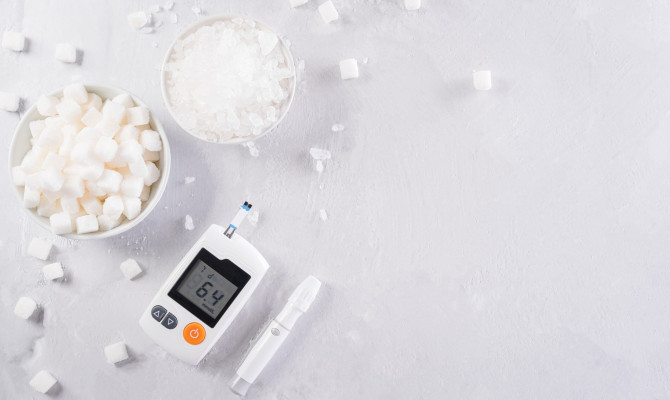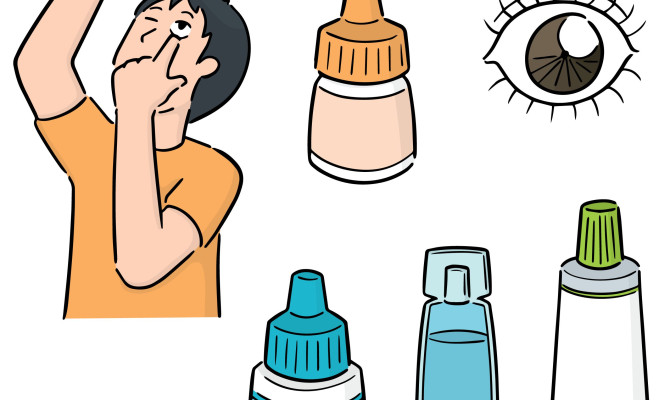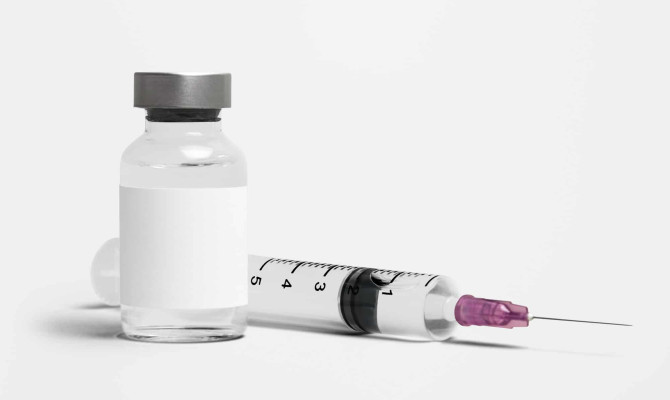Fluoxetine: Uses, Dosage, Side effects and Interactions

- Fluoxetine
- 22 Aug 2023
Overview
What is Fluoxetine?
Fluoxetine is a type of antidepressant which belongs to the group called as SSRI which stands for Selective Serotonin Reuptake Inhibitor, it helps in helping patients get out from depression by elevating the mood. It increases serotonin levels in the brain. Serotonin has a beneficial impact on mood, emotion and sleep.
The generic name is Fluoxetine while the Brand names are Prozac, Sarafem, Selfemra and Rapiflux.

Composition
- Fluoxetine hydrochloride
Mechanism of action
- When the brain doesn’t have enough serotonin, sadness or a bad mood are more likely to happen. Serotonin is also given the name 5HT. It is a naturally occurring chemical (or “neurotransmitter”) that plays a greater role in affecting moods and thoughts.
- Selective serotonin reuptake inhibitors (SSRIs) like fluoxetine work by making the brain make more serotonin. They do this by stopping serotonin from going back into the nerve ends after it has been released.
- Fluoxetine is often given along with talking therapy.
Uses
Uses of Fluoxetine
Fluoxetine can be used in the treatment of following conditions:
- Major depressive disorders
- Bulimia nervosa
- Obsessive-Compulsive disorders
- Panic disorders
- Depression
- Treatment resistant depression
- Social anxiety disorders
- PTSD (Post traumatic stress disorder
- Selective mutism
Major Depressive Disorder
- Prozac is used to treat both temporary and long-term symptoms of Depressive Disorder in adults and children of 8 to 18 years old.
Bulimia Nervosa
- Prozac is used to treat binge eating and puking in adults with mild to severe Bulimia Nervosa, both in the short term and long term.
Obsessive-Compulsive Disorder (OCD)
- Prozac is used to treat urges and compulsions in adults and children aged 7 to 17 with Obsessive Compulsive Disorder, both in the short term and long term.
Panic Disorder
- Prozac is used to quickly treat Panic Disorder in adults.
Episodes of Depression
- When taken together, Prozac and olanzapine are used to help adults with Bipolar Disorder who are going through a depressed state.
- Prozac alone is not a good way to treat the depression that comes with Bipolar Disorder.
For treatment resistant depression
- When taken together, Prozac and olanzapine are used to treat severe depression that doesn’t respond to other treatments (Major Depressive Disorder in adults who don’t respond to two separate studies of different drugs of appropriate amount and length in the current episode).
Anxiety
- Researchers examined the effects of fluoxetine (the active component in Prozac) as a therapy for generalized anxiety disorder in a review article that was released in the journal Neuropsychiatric Disease and therapy. They found that fluoxetine worked just as well as other anti-anxiety drugs and was less likely to cause side effects.
PTSD
- SSRI drugs are now the first choice for treating post-traumatic stress disorder (PTSD). Fluoxetine has a wide range of effects on all of the groups of PTSD symptoms.
Selective mutism
- Treatment with fluoxetine may help those with persistent selective mutism who also have coexisting anxiety disorders.1Uses| Researched based study from Fda.gov
Dosage
Dosage of Fluoxetine
Doctors usually suggest that people take fluoxetine (Prozac) in the morning. This is because trouble sleeping is one of the most frequent side effects of fluoxetine (Prozac). If this medicine makes it hard for you to fall asleep, you might want to take it in the morning instead.
On the other hand, some people feel sleepier when they take fluoxetine (Prozac). If fluoxetine (Prozac) makes you feel sleepy, you can talk to your doctor about taking it closer to bedtime.
In adults
- Capsules 2Dosage| Researched based study from Youngminds.org.uk are available in 10,20,40 mg capsules with delayed release are available in 90 mg
- Tablets are available in 10,20 and 60 mg
- oral solution in 20mg/5ml
In Geriatric
- Initial dosage is 10 mg per oral, but after several weeks it is gradually increased to 20mg.
Missed Dose
- Take the medication as soon as possible, but if your next dosage is nearing, avoid the missed dose. Don’t take two pills at once.
- If you forget to take a dose of Prozac Weekly, take it as soon as you remember and then wait 7 days before taking the next dose. But if the dose of next week is coming up soon, escape the one you missed and take the next one as recommended. Do not take extra medicine than usual to compensate for the dose you missed.
Overdose
- If you take too much Prozac by accident, it probably won’t be a big deal. You might have more side effects, like feeling sick or getting a headache.
- Prozac may be hazardous in high dosages. People can have seizures, heart issues, and serotonin syndrome. It is life-threatening and causes people to sweat excessively, shake, and feel confused.
How long will I have to take the drug fluoxetine?
- The majority of individuals take fluoxetine for at least 6 to 12 months after they begin to feel better. If you were suffering from depression in the past, you should continue taking Prozac medicine for a minimum of 2 years after you begin to feel better.
Before you start using fluoxetine, you must inform your doctor.
Side effects
Side effects of Fluoxetine
Fluoxetine is generally an effective and safe medication. But it can cause adverse side effects.
Common side effects of fluoxetine include:
- Insomnia
- Nausea
- Headache
- Weakness
- Diarrhea
- Somnolence
- Loss of appetite
- Dry mouth
- Pharyngitis
- Anxiety
- Blurred vision
- Changes in menstruation
- Poor coordination, trouble in walking and slurred speech
- Unexplained weight gain
- Excessive sweating
- Suicidal thoughts
- Abnormal heart rhythm
- Panic attacks
- Nightmares
- Nervousness
- Tremor
Precautions
Precautions and warnings
Hypersensitivity
- Fluoxetine may elicit an allergic response in certain individuals this reaction is usually observed within hours of taking the medication, common symptoms consist of fever, chills, muscle pain, rash, facial swelling and respiratory distress.3Precautions| Researched based study from Nlm.nih.gov
Immediately reach out to your physician if you experience:
- High fever >100 degree Fahrenheit.
- Seizures.
- Loss of consciousness.
With Alcohol
- When Prozac is taken with a drink, it can make things worse. If you’re taking Prozac, fluoxetine, or any other medicine to help sadness or anxiety, you shouldn’t drink.
In Pregnancy
- If you use fluoxetine in the early stages of pregnancy 3Precautions| Researched based study from Nlm.nih.gov , there is an increased chance of complications in the developing infant. Fluoxetine can cause cardiac issues in babies who are still in the womb and other signs in babies who are already born.
Post-natal
- If fluoxetine is taken during the previous five months of pregnancy, it can cause a dangerous disease ie. persistent pulmonary hypertension of the newborn (PPHN). This can cause the baby to breathe more quickly and look a little blue. About 3 out of every 1,000 babies born to women who take SSRIs have developed PPHN.
- The baby may also have withdrawal symptoms like being cranky and crying a lot, having trouble sleeping or sucking, and not gaining enough weight.
During Breastfeeding
- Fluoxetine gets into the baby’s body through breast milk. The most likely side effect is colic. Generally, there is around 7% of the mother’s dose of fluoxetine in the breast milk, but it has the tendency to build up over time.
Hepatic impairment
- When a person has cirrhosis of the liver, fluoxetine and its active substance stay in their bodies longer. So, people with cirrhosis should take fluoxetine in a smaller amount or less often.
Fertility
Fluoxetine can cause side effects that could change how you act in bed. These things are:
- Painful Erections
- Struggle to get an erection.
- Ejaculating early
- Bleeding from the vagina.
- Breast growth and milk flow in both men and women.
- Less sex desires.
- Fluoxetine has been known to slow down growth and put off puberty.
Glaucoma
- Fluoxetine (Prozac) can cause angle-closure glaucoma or make it worse. You might need to go to the eye doctor often to make sure your eyes are healthy and that your vision isn’t getting worse.
Low sodium amounts in the blood
- Fluoxetine (Prozac) can cause a low salt amount in the blood. Before and throughout treatment with fluoxetine (Prozac), your doctor may keep a close eye on the amount of sodium in your blood.
Interactions
Drug interactions
Some major drug interactions are:
Combined administration with MAO inhibitors
- Serotonin syndrome may result from co-administration. A pharmacological reaction called serotonin syndrome (SS) has the potential to be fatal. Serotonin, a neurotransmitter made by some nerve cells, becomes overproduced in the body as a result. If not given prompt treatment, people may gradually deteriorate and develop grave illnesses.
- When treated, symptoms typically disappear in less than a day. Even with treatment, permanent organ damage may still occur.
With linezolid
- Due to an elevated risk of serotonin syndrome, starting fluoxetine in a patient receiving linezolid or IV methylene blue is contraindicated.
- Fluoxetine should be stopped right once if linezolid or IV methylene blue needs to be delivered.
- Fluoxetine can be restarted 24 hours after the last dosage of linezolid or methylene blue or after 5 weeks of monitoring, whichever is first.
With antiplatelet or anticoagulants
- Fluoxetine (Prozac) can make you more likely to bleed or bruise badly, especially if you are also taking antiplatelets (like aspirin or Plavix) or anticoagulants (like warfarin, Eliquis, or Xarelto).
With drug causing QT prolongation
- Fluoxetine (Prozac) can change the beat of your heart if you are also taking drugs that cause QT prolongation, which can be dangerous and even kill you. Amiodarone (Pacerone) and ciprofloxacin (Cipro), among other drugs, can cause trouble with the heart’s beat.
Withdrawal
Withdrawal of Fluoxetine
When you stop taking fluoxetine all of a sudden, you may have side effects. Most of the time, these side effects are minor, but for a few people, they can be serious.
Fluoxetine and other drugs aren’t addictive. Even though there are withdrawal symptoms when you stop taking an antidepressant, you won’t want it or be “hooked” on it.
Some of the things you might feel when you stop taking fluoxetine are:
- Signs like the flu, like chills, aches in the muscles, a headache, and feeling or being sick.
- Feeling tired or weak.
- Unable to fall asleep or having vivid dreams.
- Jerky movements in the back, dizziness, especially when moving, feeling worried, restless, irritated, or disturbed.
- Having trouble remembering things or focusing on them.
Toxicity
Fluoxetine toxicity
- Fluoxetine is rarely fatal when taken by itself. But it can lead to confusion and respiratory depression when used with alcohol. When taken in large doses or with other drugs that raise serotonin levels, the drug can cause serotonin syndrome, which is a group of symptoms including changes in mental state, autonomic instability, and problems in the nerves and muscles.3Toxicity| Researched based study from Nlm.nih.gov
- When someone takes too much of an SSRI, the goal is to give them helpful therapy. This help can come in the form of protecting the lungs, giving the person a series of ECGs to check for cardiotoxicity, giving them benzodiazepines to make them relaxed, or cleaning out their GI tract with activated charcoal. Cyproheptadine can be used to help people with serotonin syndrome.
Takeaway
Takeaway
Fluoxetine is allowed by the FDA to treat depression. It is the drug that has been analyzed and studied in the most in an organized way. Even if it doesn’t work better than other drugs, its better tolerance may make it a better choice as a first-line antidepressant.
Any feedback on this article?
 This Articles content was accurate
This Articles content was accurate Very Informative Article
Very Informative Article I have a question or a comment
I have a question or a comment
 This article contains inaccurate content
This article contains inaccurate content This article was not helpful
This article was not helpful I have a question or a comment
I have a question or a comment
We appreciate your helpful feedback!
Checkout our social pages
References
-
FOOD AND DRUG ADMINISTRATION
PROZAC (fluoxetine hydrochloride) | Uses
-
Young Minds
Fluoxetine | Dosage
-
National Library of Medicine
Fluoxetine | Precautions | Toxicity




































